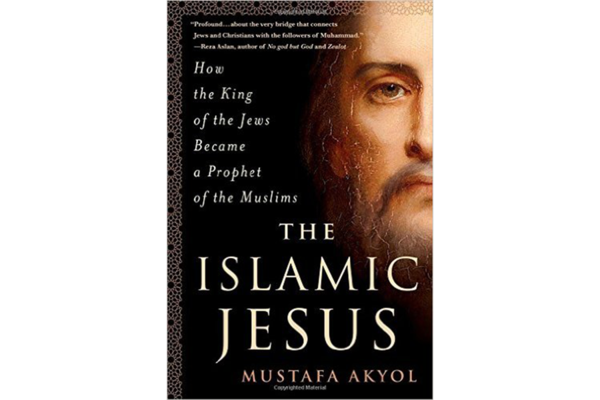Islam and Jesus

In a world rife with religious tensions at home and abroad, a new and thoughtful book proclaims some good news: There is much that Christianity, Judaism, and Islam share. For starters, all three worship the God of Abraham. This is not breaking news, of course, but author Mustafa Akyol makes the most of this and other commonalities.
The author, who is a Turkish journalist, began his theological odyssey early in this century, on the streets of his home city of Istanbul, when a Christian missionary greeted him and handed him a Bible. That night he began reading it and was struck by how much of it was consistent with his own Islamic faith.
He went so far as to underline passages he liked in blue and those he didn’t in red. Blue won out, although he found the epistles of Paul, and the Christian tenet that Jesus is divine — rather than a mortal prophet, as he is viewed in both Islam and Judaism — rough sledding.
Akyol much prefers the writing of James, whom some scholars identify as Jesus’ brother. Paul, who was instrumental in the early spread of Christianity, never met Jesus in the flesh; he is said to have encountered the resurrected messiah on the road to Damascus.
Later, when the author shared a particularly favorite passage from the Book of James with his Quranic study group, he was asked, “Are you sure this is from the Christian Bible?”
In his second book, "The Islamic Jesus: How the King of the Jews Became a Prophet of the Muslims," Akyol presses his case about just how relevant Jesus is to his faith today. He saves the best for last and his scriptural circumlocutions along the way can test a lay reader at times. Not only do Pharisees, prophets, and angels abound, but also Sadducees, Essenes, Herodians, Zealots, Sicarii (“daggermen”), Socinians, Judaizing Christians, Christian Jews, etc. All are divinely inspired, of course.
Still, the pilgrimage is worth it and provides valuable insights into the Gordian knot that relations between religions can become. The author is a moderate Muslim who is deeply concerned — as are many Christians, Jews, atheists and others — about what he calls his faith’s “grim malaise.”
He likens modern Islamic Jihadists to the first-century Jewish sect known as the Zealots, who employed violence and political assassination to battle Roman occupation. Their terror tactics only served to intensify Roman repression, the author points out, while the peaceful approach of Pauline Christianity not only won over the empire eventually, but also spread the faith throughout much of the world. Some 2.2 billion people, nearly one third of the earth’s population, are Christians.
Akyol also writes about times when relations between Jews and Muslims were better. For example, pagan and later Christian Rome banned Jews from Jerusalem, but when Muslims captured it in 637 they welcomed them back into the holy city.
At times, the author’s insights are unintentional. He describes a news photo that he received via email in 2004 from a friend — an image that went viral throughout the Muslin world — showing American Marines lounging in a mosque in Iraq in full battle gear, including their combat boots. They had just ousted insurgents from the building and were likely unaware, Akyol surmises, that wearing shoes in a mosque was highly offensive to Muslims.
He writes of the incident: “[T]he problem was not that these American soldiers intentionally insulted Muslims. It was that they were conquerors of a people whom they did not know and whose profound sense of the sacred they did not understand.” What Akyol doesn’t address here is the propriety of Muslim fighters using a sacred mosque like a bunker or an armory, to fire from and be fired upon. Inevitable questions arise from his selective outrage: Who defamed the holy place first, and which was the greater sacrilege?
Meanwhile, back to Jesus. One wonders what many of the author’s coreligionists will think of his thesis that the teachings of Jesus are crucial if Muslims are to find their way in a fractious world. In the Gospel of Luke, Jesus is reported to have said to the Pharisees that the coming of the kingdom of God is not a physical place, but rather “the kingdom of God is within you.”
Toward the end of the book Akyol urges Muslims to view the longed for Caliphate in like fashion: “Hence it is possible for Muslims today to abandon the commitment to the Caliphate as a political entity, but strive to be better caliphs on earth — as individuals with God-given faculties and responsibilities. It is possible for Muslims to think, in other words, that the Caliphate is not here or there, but within themselves.”
It is a brave commentary. There are some, of course, who will interpret it as blasphemy.